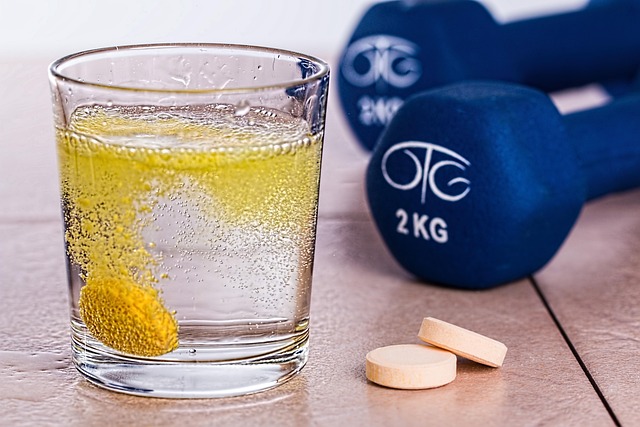Understanding Hydration Solutions and Electrolyte Beverages
Hydration is essential, and exploring different types of rehydration drinks can help you stay balanced throughout the day. From electrolyte solutions to natural fruit-based options, understanding their variety allows you to choose what fits your lifestyle and daily needs effectively.

Understanding Electrolyte Drinks for Hydration
Electrolyte drinks for hydration work by replenishing essential minerals that your body loses during physical activity, illness, or hot weather exposure. The primary electrolytes found in these beverages include sodium, potassium, magnesium, and chloride. Sodium helps your body retain fluids and maintain blood volume, while potassium supports proper muscle and nerve function. When you sweat heavily or experience fluid loss through vomiting or diarrhea, these minerals become depleted, potentially leading to fatigue, muscle cramps, dizziness, and impaired performance.
The science behind electrolyte replacement is straightforward: your body needs a specific balance of minerals to function optimally. Plain water alone may not be sufficient during intense exercise or illness because it lacks these crucial electrolytes. Hydration beverages are formulated to match the concentration of electrolytes lost through bodily fluids, making them more effective than water in certain situations. Most commercial products contain between 100 and 200 milligrams of sodium per eight-ounce serving, along with varying amounts of other electrolytes.
Sports Rehydration Drinks Comparison
When comparing sports hydration beverages, several factors distinguish one product from another. Traditional sports drinks typically contain higher levels of carbohydrates, usually in the form of sugars, which provide quick energy during prolonged exercise. These drinks generally have 14 to 20 grams of sugar per eight-ounce serving. Newer formulations often feature reduced sugar content or alternative sweeteners, catering to health-conscious consumers who want electrolyte replacement without excessive calories.
The electrolyte profile varies significantly among brands. Some products emphasize higher sodium content for athletes who sweat heavily, while others focus on a balanced mineral blend. Coconut water has emerged as a natural alternative, offering potassium-rich hydration with fewer additives than conventional sports drinks. However, it typically contains less sodium than manufactured options, making it less ideal for intense athletic performance or significant electrolyte depletion.
Taste, mixability, and ingredient transparency also factor into comparisons. Some brands use natural flavors and colors, while others rely on artificial additives. Athletes and health enthusiasts increasingly seek products with clean ingredient lists, driving innovation in the hydration beverage market.
Rehydration Beverages for Illness Recovery
Hydration beverages for illness recovery serve a critical medical purpose beyond athletic performance. When dealing with gastroenteritis, flu, or other conditions causing vomiting and diarrhea, the body loses fluids and electrolytes rapidly. Oral rehydration solutions are specifically designed to combat dehydration resulting from illness, with formulations based on World Health Organization guidelines.
These medical-grade solutions typically have lower sugar content than sports drinks and higher sodium concentrations. The precise ratio of glucose to sodium enhances fluid absorption in the intestines, making them particularly effective for treating dehydration caused by illness. Pediatric formulations are available with adjusted electrolyte levels appropriate for children.
For mild to moderate dehydration from illness, oral rehydration solutions can prevent the need for intravenous fluids. They work best when consumed in small, frequent amounts rather than large quantities at once. Healthcare providers often recommend these beverages during recovery from stomach viruses, food poisoning, or heat-related illnesses.
Comparing Popular Hydration Products
The hydration beverage market offers numerous options across different price points and formulations. Understanding what various products provide helps consumers make informed purchasing decisions based on their specific needs.
| Product Type | Key Features | Typical Cost Estimation |
|---|---|---|
| Traditional Sports Drinks | 14-20g sugar, moderate electrolytes, widely available | $1-2 per 20 oz bottle |
| Low-Sugar Sports Drinks | Reduced calories, artificial sweeteners, similar electrolytes | $1.50-2.50 per 20 oz bottle |
| Electrolyte Powders | Customizable concentration, portable, variety of formulations | $15-35 per 30-serving container |
| Coconut Water | Natural potassium source, low sodium, no additives | $2-4 per 16 oz container |
| Oral Rehydration Solutions | Medical-grade formulation, optimized absorption, unflavored or mild flavor | $5-12 per liter |
| Premium Hydration Drinks | Clean ingredients, enhanced mineral profiles, functional additives | $2.50-4 per 16 oz bottle |
Prices, rates, or cost estimates mentioned in this article are based on the latest available information but may change over time. Independent research is advised before making financial decisions.
When to Choose Electrolyte Beverages
Knowing when to use electrolyte beverages rather than plain water maximizes their benefits. During exercise lasting longer than 60 minutes, especially in hot conditions, electrolyte replacement becomes important. Athletes participating in endurance events, team sports, or high-intensity training sessions benefit most from these beverages. The carbohydrate content in sports drinks also provides fuel for sustained physical activity.
For everyday hydration needs in sedentary individuals, water remains the best choice. Electrolyte beverages become necessary when fluid and mineral losses exceed what normal eating and drinking patterns can replace. Signs that you might need electrolyte supplementation include prolonged sweating, muscle cramps, unusual fatigue, or recovery from illness involving fluid loss.
People working outdoors in hot weather, individuals with physically demanding jobs, and those traveling to hot climates should consider keeping hydration beverages available. However, excessive consumption of sugar-containing sports drinks without corresponding physical activity can contribute to unnecessary calorie intake.
Making Informed Hydration Choices
Selecting the right hydration beverage depends on your specific circumstances, activity level, and health status. Reading nutrition labels helps you understand what you are consuming. Look for products with appropriate sodium levels for your needs, reasonable sugar content, and minimal artificial ingredients if that matters to you.
Homemade hydration solutions offer an alternative to commercial products. A basic recipe combines water, salt, and sugar in specific proportions to create an effective oral rehydration solution. However, commercial products provide convenience and consistent formulation.
For serious athletes, experimenting with different products during training helps identify what works best for your body. Some people tolerate certain formulations better than others, and taste preferences influence compliance with hydration strategies.
Understanding hydration beverages empowers you to use them effectively. Whether recovering from illness, engaging in athletic pursuits, or managing hydration in challenging conditions, these beverages serve specific purposes that plain water cannot always fulfill. By matching the product to your needs and using it appropriately, you can maintain optimal hydration and support your body’s performance and recovery.
This article is for informational purposes only and should not be considered medical advice. Please consult a qualified healthcare professional for personalized guidance and treatment.




